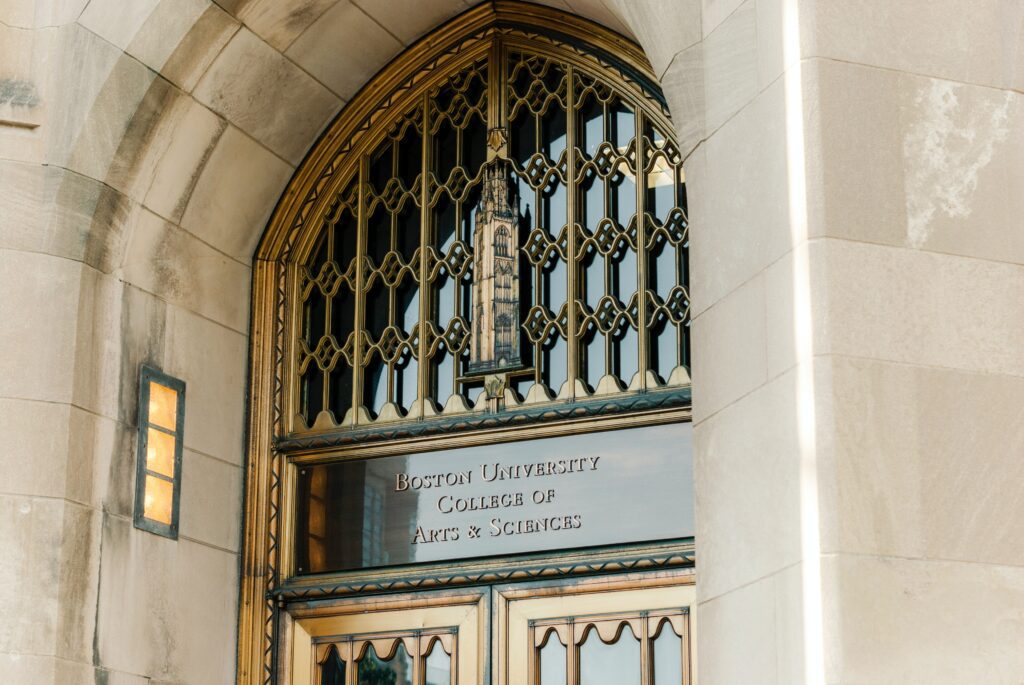
Test-Optional College Admissions – Introduction
In the wake of the COVID-19 pandemic, more and more test-optional colleges have emerged, adopting admissions policies that don’t require standardized tests. This shift has opened the door for more students to apply to college without the added barrier of taking SATs or ACTs.
As more schools become test-optional colleges, you may wonder, what do these test-optional universities look for? How do test optional schools evaluate students, and where should students looking for test-optional universities apply?
In this guide to test-optional colleges, we’ll break down the relationship between test scores and various college application requirements. We’ll give you all the information you need about test optional schools and walk you through the top 25 best test optional schools, reviewing their policies around standardized testing. That way, you can know what to expect if you have any test-optional universities on your college list.
This Test-Optional Colleges Guide will answer questions like:
- What are the best test optional schools?
- How do test-optional colleges use standardized testing in the admissions process?
- For how long will schools remain test-optional?
- What are the best test-blind colleges?
- How do test scores relate to other college application requirements?
- And more!
Now, let’s dig into some details about test-optional colleges.
What is a test-optional college?
Before we provide lists of test-optional universities, let’s discuss what test-optional colleges are.
Test-optional colleges are colleges that do not require students to submit SAT or ACT scores as part of their college admissions requirements.
Often, sending high SAT or ACT scores will strengthen a student’s application, even at test-optional colleges. However, if you choose to omit your SAT or ACT scores, your application will not face penalties.
Different test-optional colleges have different approaches to standardized testing in their college admissions requirements. When in doubt, you should always check the college application requirements for any test-optional colleges. Different test-optional colleges may have different college admissions requirements, which can vary based on program or major.
At some test-optional colleges, students must meet certain GPA thresholds in order to apply without ACT or SAT scores. While this is a rare policy, you may find it at certain test-optional colleges on your list. In some cases, this means that students from certain backgrounds—such as international students or homeschooled students—must still submit scores in order to apply and enroll.
Test-flexible policy
Other schools have more “test-flexible” admissions policies. This means that students can submit other test scores (such as AP exam scores) in lieu of taking the SAT or ACT. You should always check to see whether AP tests or other exams are included on any list of college admissions requirements.
Other test-optional colleges allow all students to decide whether to submit ACT or SAT scores. Often, these fully test-optional colleges suggest that students only submit test scores if they believe that they are an accurate representation of their abilities. These test-optional universities understand that standardized testing does not always reflect students’ full potential. By instituting these policies, test-optional colleges hope to open the door for students to show their skills in the best light.
As you consider test-optional colleges, you should also think about the relationship between SAT requirements or ACT requirements and merit scholarships. At some test-optional universities, students must still submit SAT or ACT scores to be eligible for merit aid or scholarships.
So, even at test-optional colleges, there may be reasons why you choose to submit your test scores. As you apply to test-optional colleges, keep each school’s policies in mind. After all, these policies may look different at different test-optional universities, including within the Ivy League admissions process.
Want to put your admissions knowledge to the test? Take our quiz below to see just how familiar you are with the college admissions process.
How do test-optional colleges evaluate students?

If you choose not to submit your test scores to test-optional universities, the other components of your application will carry more weight. This includes your GPA, extracurricular and summer activities, resume, recommendation letters, and essays.
So, if you’re hoping to secure a college acceptance letter, you should work hard to perfect every other aspect of your application. That way, you can be sure to impress any test-optional colleges on your list. Remember, test-optional colleges are not less selective than other schools—they simply don’t have any SAT requirements. In fact, many of the best test optional colleges are some of the best universities nationwide.
The ACT website offers some useful tips for students as they consider applying to test-optional universities. As the ACT testing commission states, you should do your research on every school to ensure you fully understand their testing policies. This includes asking admissions officers at test-optional universities important clarifying questions.
Good questions to ask admissions officers at test-optional colleges:
- Without test scores, how are the different components of my application weighted?
- How will students be placed into the appropriate level for certain courses (math, foreign languages, etc.)?
- Are test scores still used for any merit scholarship opportunities?
- Does the acceptance rate differ for students who don’t submit test scores as opposed to those who do submit them?
Of course, not all test optional colleges will be able to answer these questions. However, as you apply to test-optional universities, you should try to learn as much as possible. Different test optional schools will have different policies.
So, when it comes to the best test-optional colleges, always do your research. Even if you’re only applying to test-optional universities, you might still need to take the SAT or ACT to receive merit aid. When in doubt, check each school’s website so you understand any SAT or ACT requirements at the best test optional colleges.
Are all colleges test optional?
The list of test-optional colleges is growing every day. However, not all schools are test optional colleges.
Some schools still have SAT requirements or ACT requirements. While these schools do not require that students reach a certain score in order to apply, a weak SAT or ACT score could still hurt your application. So, you should always double-check any college admissions requirements—even at test-optional colleges. Additionally, some test optional schools have different college admissions requirements for different programs.

Testing policy at Cornell University
For instance, at Cornell, certain programs will not review standardized test scores at all. So, you might find Cornell’s College of Agriculture and Life Sciences or College of Art, Architecture, and Planning on a list of test-blind colleges, as these programs do not review test scores at all within the admissions process.
However, other schools within Cornell—such as the College of Arts & Sciences—are simply test-optional. This means that for these programs, Cornell will still evaluate your test scores if you choose to submit them. When in doubt, check the college application requirements on any school’s website.
Among the best test optional colleges, you’ll notice a lot of variation across standardized testing policies. So, if you’re wondering what schools are test-optional universities, make sure you do your research. The most up-to-date SAT requirements and ACT requirements can always be found on a school’s university admissions website.
Also, keep in mind that these standardized testing policies change quite often. Many schools have instituted test-optional policies for a trial period of two or three years. So, if you’re still far off from your own college admissions process, you should check the website for each admissions office before you apply. That way, you can ensure you have the most accurate information and can fulfill all college application requirements.
What are the best test optional colleges?
If you’re asking about the best test-optional colleges and test-optional universities, you’re probably thinking about college rankings. In the next section, we’ll dig into a list of colleges waiving SAT and ACT scores by ranking. That way, you can find out what the best test optional schools are.
However, before we list our top test-optional colleges, let’s look at a few test-optional universities in more detail.
1. Columbia University

Columbia is one of the best test optional colleges. If you’re wondering about the Columbia admissions testing policy, we’ve got some good news. Columbia University will not require standardized tests as part of the Columbia admissions requirements when applying to Columbia College or Columbia Engineering.
2. UCLA

UCLA isn’t just one of the best test optional colleges—this school takes it even further. The UCLA admissions requirements around standardized testing differ from those of many test optional universities. Namely, the UCLA admissions office is test-blind rather than test-optional. This means that UCLA admissions will not look at your standardized test scores, even if you submit them.
3. Harvard University

If you want to find the best test optional colleges, you can look to the Ivy League. Many Ivy League admissions offices have instituted test-optional admissions policies, and Harvard is no exception. Harvard will not require standardized tests for students applying to be in the Classes of 2027-2030.
4. Boston University

The Boston University admissions office has also chosen to adopt a test-optional policy through Fall 2025 and Spring 2026. So, as you build a testing plan for the Boston University admissions process, note that you won’t need to include test scores on your application.
5. Tufts University

The Tufts admissions office also has chosen to institute a test-optional admissions policy. This means that Tufts admissions will allow you to choose whether you submit test scores in your application.
These schools, among others, are some of the best test optional colleges out there. Elite schools like Notre Dame, Duke, and Vanderbilt have also instituted test-optional admissions policies. Like Boston University admissions or Tufts admissions, these test optional schools do not require students to submit scores as part of their college application requirements.
Top 25 Best Test-Optional Colleges
Now that we understand some key details about test optional schools and their college admissions requirements, let’s run through the top 25 best test-optional colleges and test-optional universities. In this section, we’ll use college ranking data according to U.S. News.
Note that the U.S. News college rankings separate liberal arts colleges from universities. The following list includes both the best test optional colleges and test-optional universities.
Without further ado, let’s look at a list of colleges waiving SAT and ACT scores by ranking. Here are the best test optional colleges:
Top 25 Test-Optional Colleges
- Princeton University
- Columbia University
- Harvard University
- Johns Hopkins University
- Yale University
- University of Chicago
- Stanford University
- University of Pennsylvania
- Duke University
- Vassar College
- Northwestern University
- Dartmouth College
- Brown University
- Vanderbilt University
- Rice University
- Washington University
- Williams College
- Amherst College
- Swarthmore College
- Pomona College
- Wellesley College
- Bowdoin College
- Claremont McKenna College
- Carleton College
- Middlebury College
You’ll see many top schools on this list of the best test optional colleges. In particular, you might be wondering about the relationship between Ivy League admissions and the new test-optional landscape. After all, you’ll see lots of Ivy League test-optional colleges on the list of colleges waiving SAT and ACT scores above.
Ivy League Schools remain test-optional for upcoming admissions cycle
In fact, all Ivy League admissions offices will not require students to submit standardized test scores for the upcoming admissions cycle. So, if you’re building an Ivy League admissions plan, it might not include submitting test scores. However, as we’ve discussed, a high SAT or ACT score can only help your application. When it comes to Ivy League admissions, you should do everything you can to stand out. If you want to impress Columbia admissions or Cornell admissions, you should still aim for a high test score.
Remember, you should always check each school’s individual college admissions requirements. Don’t get caught off-guard because you didn’t do your research. While you shouldn’t find SAT requirements in the college application requirements at these schools, it’s best to double-check. After all, testing policies are continuously in flux at many top schools.
Test Optional Schools: Why some schools are ditching standardized testing
Before the COVID-19 pandemic, certain schools had already become test-optional colleges. This means that they had eliminated SAT requirements and ACT requirements from their overall college application requirements.
However, when the pandemic hit, many schools had to change their college application requirements to accommodate. This meant that many colleges and universities altered their college admissions requirements, removing the need for SAT and ACT scores.
In the wake of the pandemic, many students could no longer safely take standardized tests. Testing centers were shut down, and the College Board could not support a testing model that would take place inside the home. This meant that many schools waived their SAT requirements and ACT requirements in order to ensure that their university admissions policies remained accessible during isolation.
While testing centers have now reopened, conversations around test-optional colleges have continued. Many admissions offices question the value of including SAT and ACT scores within their college application requirements.
Test scores and achievement
Studies have repeatedly shown that test scores often do not adequately reflect intelligence or achievement. Instead, they tend to be biased toward students who come from wealthier or more privileged backgrounds.

Test optional schools recognize this. By altering their SAT and ACT requirements, test optional schools hope to increase diversity within their student bodies. By removing SAT requirements, these schools hope to make their college application requirements more equitable.
Standardized testing is also a skill in itself—and not always one that belongs in any college application requirements. Mastering the SAT requires that students learn certain skills based around multiple-choice questions and timed assignments. Many high-achieving students might test poorly, even if they shine in other academic areas. Even when students receive accommodations, the SAT and ACT also disadvantage students with ADHD, dyslexia, and other learning disabilities.
The students who score highest on the SAT are often those who have access to personalized tutoring and practice tests—not necessarily those who have the highest grades. Many proponents of test-optional college admissions believe that standardized test scores have little bearing on students’ ability to succeed in college. By removing the SAT from any college application requirements, these schools hope to create a fairer admissions process.
The problem with standardized testing
Colleges across the nation are becoming test optional schools, eliminating the SAT from their college admissions requirements. You might be wondering more about why this shift is happening, as well as the problems with standardized testing as a whole.
As many experts have pointed out, standardized tests do not always assess the right things. A student with a low SAT or ACT score can still succeed in a college environment. Other college application requirements, some experts argue, will give admissions offices a better sense of students’ abilities and how they will contribute to the universities they choose to attend.
Overall, data is mixed when it comes to the correlation between test scores and student achievement. In fact, the best indicator for how well a student will do on the SAT or ACT is parental education level. Students whose parents went to college—and, therefore, students from more privileged backgrounds—tend to do better on the SAT and ACT. So, SAT requirements tend to favor students from affluent families over those first-generation college students or students with fewer resources.
The cost of retaking standardized tests

Additionally, SAT and ACT requirements can be a barrier for some students applying to top schools. Students who take the tests multiple times tend to increase their scores. However, the SAT is expensive, adding to the cost of other college application requirements (including fees). The SAT costs $60 in registration fees, so students who cannot pay to retake the test may have to submit lower or suboptimal scores to colleges.
Making higher education more accessible
As the conversation around test-optional colleges and their college admissions requirements has evolved, some have questioned the reasons why so many schools are becoming test-optional universities. Many test optional colleges have stated that their reason for no longer requiring scores is to increase the accessibility of higher education. And, of course, these schools’ decision to forego SAT requirements and ACT requirements often aims to do just that.
Still, the data on the relationship between increased diversity and testing policies at test optional colleges remains murky at best. One recent study of 180 liberal arts colleges (30 of them test-optional colleges) found that there was no increase in diversity among schools that removed SAT and ACT requirements. Other studies have been less clear, suggesting that there is a positive—if slightly unclear—link between test-optional policies and student diversity.
More applications means lower acceptance rates
Moreover, as test optional schools institute these policies, they also receive more applicants. This means that they can reject more students and lower their acceptance rates, which helps them increase their prestige (and, on some metrics, their college rankings).

Students who do submit their scores at test-optional universities tend to score higher. This means that the best test optional colleges will see a false inflation of their students’ SAT and ACT scores. Since SAT requirements influence U.S. News rankings, this inflation can, in turn, increase these schools’ rankings. However, it’s worth noting that U.S. News will not include test scores in their review of a given school if the school collects scores from less than 75% of applicants.
The benefits of requiring SAT and ACT scores for college admissions
The SAT is a fraught topic in many university admissions spaces. In recent decades, many college admissions offices have asked the question: do SAT scores really reflect student achievement? And, moreover, are SAT requirements a useful way for colleges to evaluate students?
There are still plenty of proponents of SAT requirements and ACT requirements nationwide. Studies do show some link between SAT scores and IQ, which leads some stakeholders to continue supporting SAT requirements. Still, both the SAT and IQ tests are widely debated in terms of their relationship with intelligence as opposed to other markers of wealth and resources.
Other proponents of the SAT capitulate that yes, the SAT is biased toward white and wealthier students. However, this bias does not stem from the SAT alone. Instead, it is woven into the fabric of our education system. So, to increase student achievement for underrepresented groups, schools must do more than eliminate SAT requirements.
Tests can be useful for helping comparing students
Finally, some defend the SAT based on practicality alone. Without the SAT, some admissions offices find it more challenging to compare students from different educational backgrounds. After all, a student who receives an A at one school might not actually have a stronger academic record than someone who receives a B at another. SAT requirements, some argue, allow university admissions offices to compare students from different environments in a more equitable manner.
As test optional schools become more mainstream, it’s worth asking what the SAT actually measures. Even if test optional schools don’t necessarily see an increase in diversity among accepted students, that doesn’t mean the SAT is inherently valuable. Instead, it’s just one part of the college admissions puzzle, even at test optional schools. It may or may not reflect a student’s full range of abilities.
How do I know if a college is test-optional?
Test optional colleges will always list their testing policies on their website. You can use our lists in this guide to learn about certain test-optional universities. However, the safest bet will always be to check a school’s admissions website.
You can also reach out to test optional schools and ask about their SAT requirements if it isn’t clear from the website. This can give you the chance to ask other questions about university admissions, including how the other components of your application will be weighted without test scores.
So, when in doubt, visit the website for any of the test optional schools we’ve discussed. Testing policies are widely in flux, with more universities becoming test optional schools every day. Regardless, it’s always best to double-check. Also, some schools may currently be test-optional but return to their SAT requirements in future years.
Is Georgetown test-optional?

No, Georgetown is not test-optional. Georgetown is one of few top schools that still require students to submit standardized test scores. So, your test scores will influence your Georgetown admissions odds.
If you have access to a testing center, you must take the SAT or ACT to apply to Georgetown, unlike at test optional schools. Georgetown admissions does allow students to submit a test waiver if they cannot access a testing center due to the ongoing COVID-19 pandemic. However, these waivers will only be provided in special cases. For most students, SAT and ACT scores remain a key part of the Georgetown admissions process.
Note that Georgetown admissions uses a holistic review process. So, even if you don’t have the best scores, you can still apply. The Georgetown admissions office will look at your SAT or ACT scores alongside your GPA, recommendations, extracurricular activities, and essays.
Will schools stay test-optional forever?
In a word (or two): not necessarily.

More schools than ever are becoming test-optional colleges. Many test-optional colleges instituted their new testing policies in 2020. In large part, this shift originated from the COVID-19 pandemic, when few students could access testing centers. Since students could not gather to take the SAT, it made sense that universities would forego any SAT or ACT requirements.
Testing centers have reopened, but the conversation around the merit of the SAT has continued. Most test-optional colleges have agreed to forego SAT or ACT requirements for the next several years, but not forever. While these test-optional colleges may choose to make their testing policies permanent, nothing is guaranteed.
So, as you plan your university admissions process, always check each school’s website. When it comes to test-optional colleges, it’s best to play it safe.
More test optional schools to explore
As we’ve discussed, there are a lot of test optional colleges out there. Let’s take a closer look at a few more test-optional universities. We’ll explore Duke admissions, Cornell admissions, and Brown admissions.
Three more test-optional colleges to add to your college list

Duke University
The Duke admissions team no longer requires students to submit their test scores. So, if you want to get ahead in the Duke admissions process, focus on other parts of your profile. These include your extracurriculars, grades, and more.

Cornell University
We’ve discussed how the Cornell admissions process depends on the college where you apply. So, as you build your Cornell admissions plan, double-check the SAT requirements for your chosen school.

Brown University
Ivy League admissions offices have broadly shifted away from requiring test scores. Brown is no exception. You’ll find that this school has no SAT or ACT requirements for applicants.
Test-Optional Colleges In New York
New York is home to many test-optional colleges that you might want to include in your college list. These universities have no SAT or ACT requirements. So, at these schools, students can choose whether to submit their SAT and ACT scores.

Best test optional colleges in New York for your college list:
- Columbia University
- Cornell University
- Barnard College
- NYU
- Colgate University
- University of Rochester
- Vassar College
- Skidmore College
- Syracuse University
- Clarkson University
As test-optional universities, these schools will only review your SAT or ACT scores if you choose to submit them. If you don’t feel that your scores reflect your full ability, don’t send them—your application will face no penalties. However, if you have a strong score, go ahead and submit it.
Test Optional Schools In California
In this section, we’ll walk you through a list of colleges waiving SAT and ACT scores in California. However, before we discuss test optional schools in California, let’s discuss one special case when it comes to test optional colleges: the UC system.
The University of California System: a leader in test-blind admissions
The UC system has always played a major role in the nation’s shift toward test-optional colleges. This began in 2001, when then-UC President Richard Atkinson recommended that schools use other exams—rather than the SAT—to measure achievement. Atkinson maintained that high school grades (rather than test scores) were the best marker for students’ skills. Following Atkinson’s recommendation, the SAT underwent a complete redesign, including the elimination of some key sections. In the wake of the pandemic, the UC system chose to dramatically shift its attitude toward standardized testing. The UC universities aren’t just test optional schools—instead, they took it one step further.
The UC system is made up of test-blind colleges rather than simply test-optional colleges. At test-blind colleges, students’ test scores have no influence on the application process. Even if you submit your scores, test-blind colleges will not review them. Instead, these schools focus on other parts of your application, including your grades, extracurricular activities, and essays.
Test-optional colleges vs. test-blind colleges
At most test-optional colleges, university admissions officers will still review standardized test scores from any students who submit them. However, in the UC system, admissions officers will not review SAT or ACT scores at all.
For instance, if you apply to UCLA, the UCLA admissions requirements do not even consider your SAT or ACT scores. In fact, unlike at test optional schools, test scores have no bearing on the UCLA admissions process. So, as you complete the UCLA admissions requirements, you won’t need to worry about your SAT scores.
Now that we’ve discussed the UC’s test-blind admissions policy and how it differs from that of test optional schools, let’s dig into test-optional (rather than test-blind) colleges in California. At these schools, you can choose whether or not to submit your standardized test scores.
Here’s our list of colleges waiving SAT and ACT scores in California, not including the test-blind colleges in the UC system.

Best test-optional colleges in California for your college list:
- Stanford University
- California Institute of Technology (Caltech)
- Harvey Mudd College
- Pomona College
- University of Southern California
- Claremont McKenna College
- Pitzer College–
- Scripps College
- Santa Clara University
- Pepperdine University
Unlike the test-blind colleges that make up the UC system, these California colleges are test-optional. That means they will only evaluate SAT or ACT scores if you choose to submit them. As some of the best test optional colleges out there, these schools will look at every part of a student’s profile when determining admission.
So, yes, your SAT and ACT scores will matter if you submit them to these schools. However, the rest of your application will also play a major role in the university admissions process.
Test-Optional Colleges In Florida
Looking for test-optional universities in Florida? Let’s look at a list of colleges waiving SAT and ACT scores in Florida.

Test-optional colleges in Florida for your college list:
- University of Miami
- Rollins College
- Nova Southeastern University
- Keiser University – Fort Lauderdale
- Everglades University
- Stetson University
- Jackson University
- Florida Southern College
- University of Tampa
- Palm Beach Atlantic University
These schools are test-optional colleges rather than test-blind colleges. So, you can choose whether to submit your test scores as part of your application. If you have a high SAT or ACT score, you should always submit it. After all, it can only help your application—even if the school where you’re applying has no SAT requirements.
Test-Optional Colleges In PA
Finally, let’s look at test optional colleges in one more state: Pennsylvania. Below is a list of colleges waiving SAT and ACT scores in Pennsylvania.

Test-optional colleges in Pennsylvania for your college list:
- University of Pennsylvania
- Carnegie Mellon University
- Swarthmore College
- Haverford College
- Lehigh University
- Penn State
- Villanova University
- University of Pittsburgh
- Lafayette College
- Bucknell University
Once again, these are test-optional universities rather than test-blind colleges. At any of these schools, you can choose whether to submit your SAT or ACT scores.
Test-Optional Colleges – Final Thoughts
As we’ve discussed, there are a lot of test-optional colleges out there. Whether you’re looking to succeed in the Ivy League admissions process or just want to find the right school for you, there are plenty of options.
Testing policies are changing every day, so always make sure you double-check the testing policies for the schools on this list. That way, you’ll never be caught off guard by any surprise SAT requirements or ACT requirements. And, when in doubt, always try to take the SAT or ACT to avoid accidentally closing any doors. Good luck!

This article was written by Abbie Sage. Looking for more admissions support? Click here to schedule a free meeting with one of our Admissions Specialists. During your meeting, our team will discuss your profile and help you find targeted ways to increase your admissions odds at top schools. We’ll also answer any questions and discuss how CollegeAdvisor.com can support you in the college application process.
